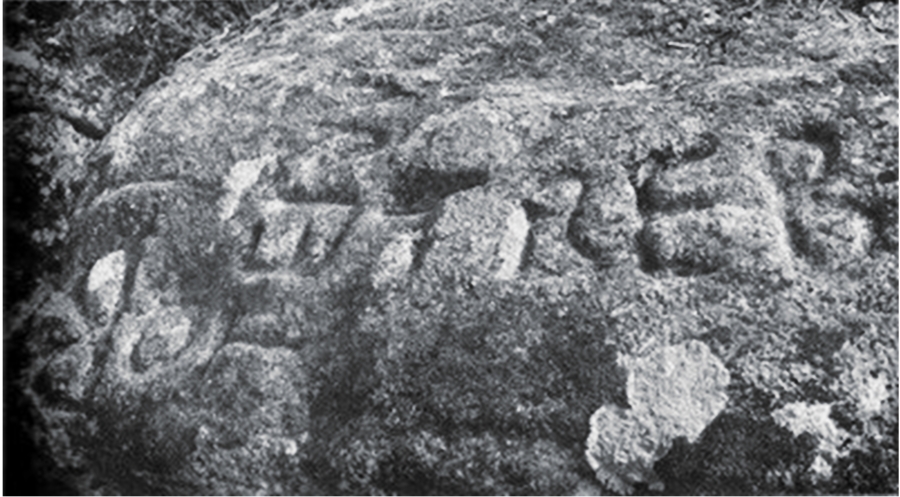As in Ireland (MacCone 1990; Gibson 1995; Byrne 1971), Wales (Hubert ), Scotland (A. Dogshon), continental Europe (Wens; Halselgrove) and the Nordic countries (Kristiansen), the ancient Gallaecia configured itself as a succession of political territories that probably emerged at an early stage. In Treba y Territorium (USC 2004), in a long term study (1987-2010) of a Galician shrine in Narão (Northwest Galiza), this author notes a Neolithic origin of the Treba .
Our Political Territory was named in Galician and Lusitanian language TREBA. The voice, from the domestic sovereignty, means “House,” Shire”,” Political Territory “. Pliny mentions the Arroni or Arrotrebae, this is Arros or County Arrós. And the voice Treba is mentioned twice -among the epithets undoubtedly intensify the role of Matres – in an inscription found in Cabeço das Fraguas, Portugal, written in late Vulgar Latin, infiltrated with the substrate of the Lusitanian-Galician language. Towards the end of the registration TREBARUNE [psb. determinant “of the Treb” + determinated “Moon” (r / l) “Luna”, and, again REVE TR[EBARUNA?] – psb. Old Irish Re, Reve “moon”- ], and to the beginning of the inscription in TREBO-PALA, referring no doubt this time to an “altar stone”, meaning the ancient voice pala “stone”, (Old Irish fail) of the tribe in terms of sacred geography. The altar stone also appears as TOUDO-PALA (* TEWTO-PALA, “Túatha Fáil” ) or CROUGIN-TOUDADIGO [CROUGIN/Cruachan “Stone altar” TOUDADIGO (as Teutates), “of the túath”]. In the epigraphic record of the Northwest’s voice also TREB [A] appears in Gallaecia Bracarense in a cruciform landmark terminalis pointing border of Obili [Anci?]: TERM [MINVS] TREB [AE] OBILI [ANCORUM? [Sanfins; Valpaços, Chaves (Portugal)]
Hubert assinala que Gales conheceu a palavra TREBA para o Teritorio político, dantes de que quatro reinos se repartissem o país subdividido em distritos chamados Can/tref. As vozes CONTREBIA (Celtiberia) e CONTRIBUTI (Interim Oscenses et Calagurritani qui erant cum oscensibus contributi –Caesar BC 1, 60-), expressam confederación; as vozes ATREBATES e ATTRIBUTI a anexión por conquista de umas tribos a outra à que pagam tributo censum (lat. AT/TRIBUERE) (insulae Rhodis attributae = “ilhas anexadas a Rodas”)
Valpaços
Marcar a ligazón permanente.

